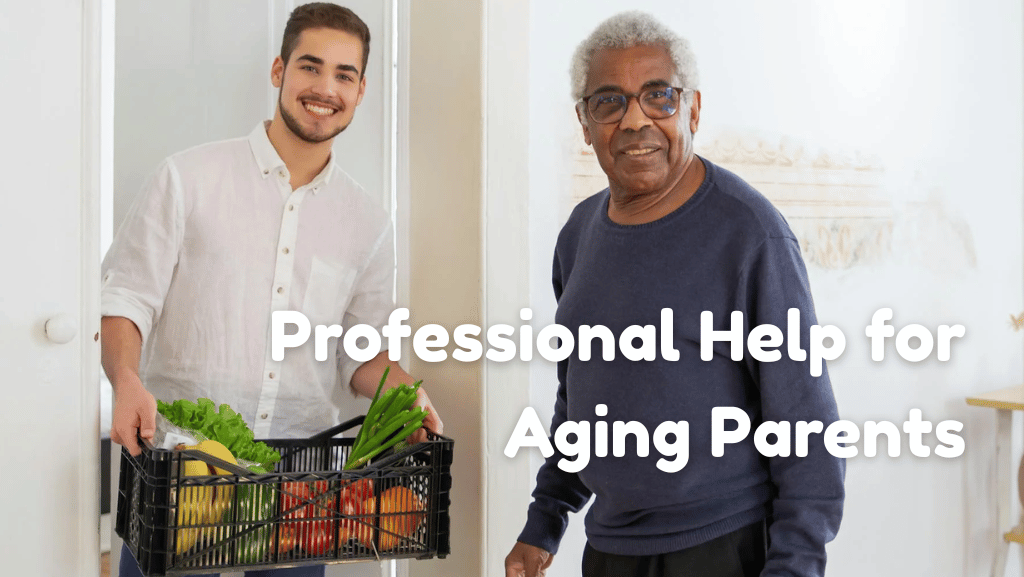It crept up on me slowly, the realization that my parents weren’t quite the same as they used to be. One day, they were the ones checking in on me, and the next, I found myself double-checking whether they’d remembered to turn off the stove.
If you’re like me, you probably grew up thinking your parents were invincible. So, when things start to shift, it can be hard to admit it might be time to bring in extra help.
For anyone sitting in that uncomfortable in‑between space, here are 10 signs it might be time to consider senior care or a retirement community.
1. They’re Struggling With Everyday Tasks
At first, you might not even notice it. The house is a bit messier, and meals start looking more like snacks cobbled together from the fridge. But when things like bathing, dressing, cooking, or doing laundry become difficult or neglected entirely, it’s a red flag.
Simply put, if basic routines are slipping, help may be necessary.
2. You’ve Noticed Changes in Their Appearance
This one hit me harder than I expected. My mom always took pride in how she looked, but then she started wearing the same clothes multiple days in a row. Her hair was unwashed, and she just didn’t seem like herself.
These changes can signal deeper issues. Maybe mobility is harder, or maybe depression is creeping in. Either way, professional support can make a real difference.
3. Medication Mishaps Are Becoming Common
My dad used to remind me to take my vitamins. Lately, he’s been forgetting his blood pressure pills altogether or taking the wrong dose. Medication management is a critical piece of aging well. If your parent is making frequent mistakes, it’s a safety risk.
4. They’re More Isolated Than Usual
I used to joke that my parents had a busier social life than I did. But then the phone stopped ringing as much, and visits with friends became rare. They even skipped church.
Social isolation can be dangerous. A 2024 review confirmed strong links between isolation and lower cognitive function in older adults. A professional caregiver or companion can bring structure and connection back into their life.
5. Their Driving Is Unsafe
This one is tough. Taking the car keys away is one of those symbolic turning points. If your parent has had a recent fender bender, gotten lost while driving, or seems overly anxious about getting behind the wheel, it’s time to reassess.
Losing the ability to drive can be a huge blow to independence, but good senior care options often include transportation help, which makes a world of difference.
6. You’re Constantly Worried About Their Safety
There was a point where I couldn’t go a day without worrying if my mom fell again or if my dad left the oven on. What if someone were checking in every day? If your peace of mind has taken a nosedive and you’re doing mental gymnastics every day just to make sure they’re okay, it’s not sustainable for you or them.
7. There Are Signs of Cognitive Decline
It’s more than just forgetting where they put their glasses. If your parent repeats the same story five times in one call, gets confused about dates, or has trouble following conversations, it might point to early signs of dementia or other cognitive issues.
Early intervention matters here. The right care can slow progression and improve quality of life significantly.
8. Their Mood Has Shifted
Depression in seniors is often underdiagnosed, partly because people assume it’s just part of aging. If your parent seems withdrawn, irritable, tearful, or just “not themselves,” don’t ignore it. A caregiver can provide companionship, routine, and a trained eye for when something’s not right emotionally.
9. There Are Unexplained Injuries
When my dad showed up with a bruised arm, he brushed it off. “Just bumped into the table.” But these little injuries with vague explanations kept happening until it dawned on me that something was off.
Falls are the leading cause of injuries in older adults, and underreporting is common. Minor bruises may hide bigger problems, so having someone trained watching out makes a big difference.
10. Caregiving Is Taking a Toll on You
This one’s personal. I wanted to be everything for my parents. I was their cook, driver, emotional support, and part-time nurse. But I started burning out. I snapped at my partner, I was distracted at work, and worst of all, I still felt guilty all the time.
You can’t pour from an empty cup. If your caregiving duties are hurting your health, relationships, or work, it’s smart and loving to get help.
The Takeaway
Recognizing that your aging parent needs help is never easy. Making the decision to bring in professional support can feel like handing off something that should be your responsibility.
But getting help doesn’t mean you’re doing less. It means you’re making sure your parent is safe, supported, and getting what they need from you and from professionals trained to handle these challenges.
Whether you’re just starting to see a few warning signs or already deep into daily caregiving, you’re not alone. There are services that specialize in compassionate, professional senior care designed to meet people where they are.
Your parents took care of you, but burning out is not going to help you pay off the debt you feel toward them. Make sure they’re getting the care they deserve without running yourself into the ground, and everyone will be better off.




